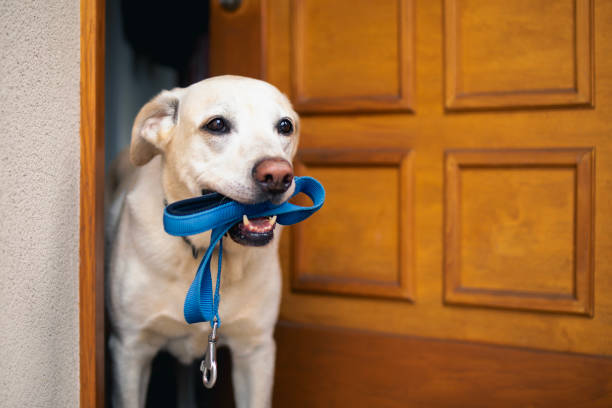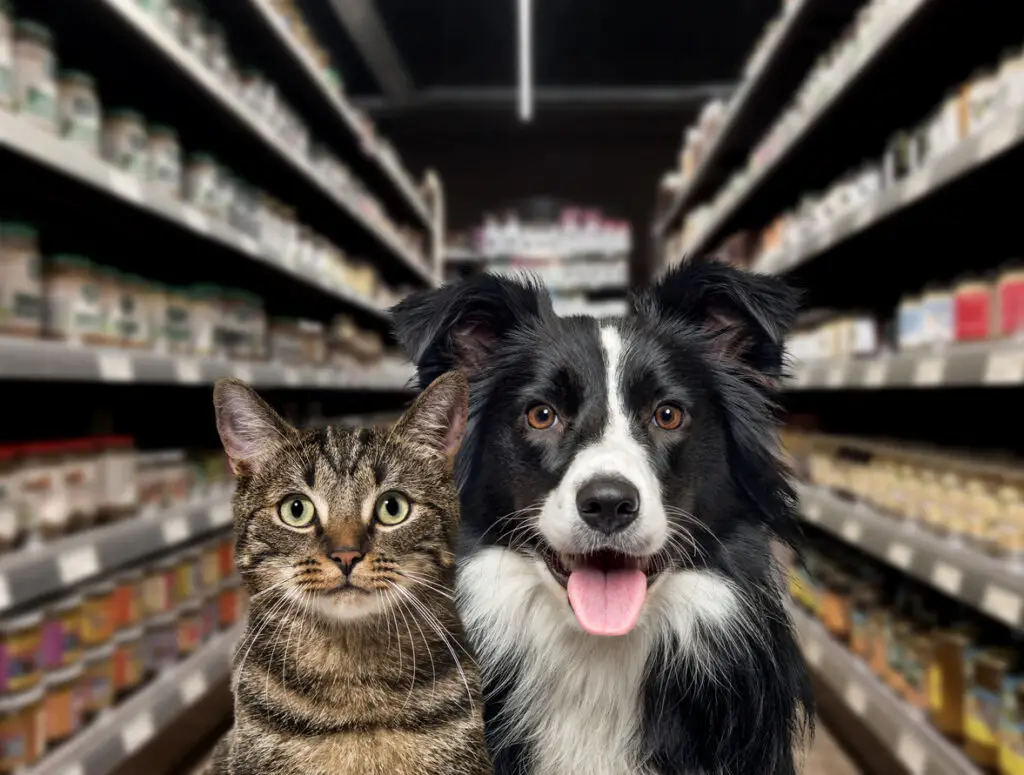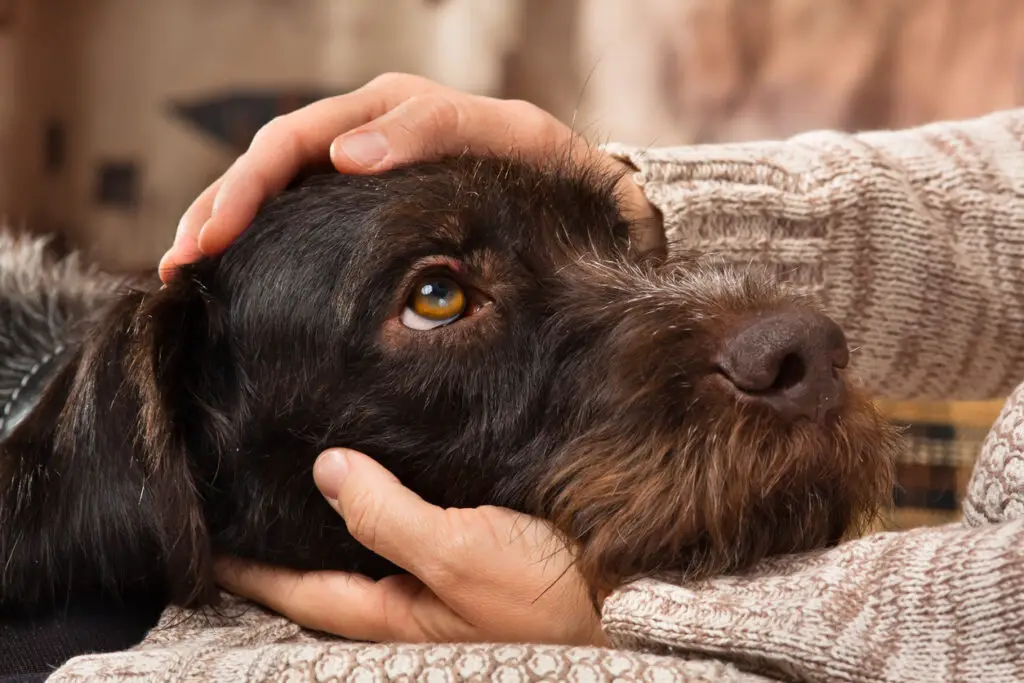We Love Them Dearly—But No One Talks About the Invisible Stress That Can Come With Being a Devoted Pet Parent.

Pets are often described as emotional lifesavers. They ease loneliness, give structure to our days, and love us unconditionally. But even the deepest love stories have complications. What happens when the responsibilities start to feel heavier than expected? When the emotional labor goes unspoken? Or when the very thing that once soothed you starts to quietly drain you?
For many pet owners—especially women balancing work, caretaking, and everything else—these moments can add up to real mental strain. From sleep disruption to financial stress to complex grief, here are ten eye-opening ways your beloved pet might be impacting your mental health more than you realize.
1. Sleep? What Sleep?

That cozy moment when your dog curls at your feet or your cat purrs beside your pillow may feel comforting—but behind the scenes, your sleep quality could be paying the price. Research from the Mayo Clinic Center for Sleep Medicine found that over 50% of pet owners who share a bed with their pets report frequent nighttime disturbances. These include everything from snoring and shifting positions to full-on midnight zoomies or bathroom alerts. Over time, these small interruptions lead to sleep fragmentation, a condition where the body never reaches the deep, restorative stages of sleep it needs to regulate mood, memory, and hormones. For many women juggling stress and caretaking roles, this becomes a tipping point that quietly drains mental stamina.
And unlike a restless partner who can be reasoned with, pets don’t understand boundaries in the same way. You may feel too guilty to kick your dog off the bed or too nervous to shut the door on a lonely cat. This dynamic creates a power imbalance where your own rest and recovery are repeatedly deprioritized. Chronic sleep disruption, even at a low level, has been linked to higher rates of anxiety, depression, and emotional dysregulation. If your mornings start with brain fog and your evenings end with a tug-of-war for blankets, your beloved pet may be stealing more than space—they might be undermining your mental health without either of you realizing it.
2. The Constant Guilt Loop

Even the most devoted pet owners wrestle with a quiet, gnawing guilt—one that creeps in when you’re running late, skipping a walk, or leaving them behind for a weekend getaway. It’s not always loud, but it lingers. A 2022 study published in Animals found that dog owners who frequently feel guilty about their caregiving were significantly more likely to experience symptoms of depression, anxiety, and work–life conflict. Researchers dubbed this “disenfranchised guilt”—an emotional burden that isn’t culturally recognized, even though it deeply affects daily well-being. Unlike parent guilt, which is widely validated, pet guilt often goes unspoken, leaving owners to shoulder it alone.
This guilt can be relentless, especially for women balancing full plates. You might feel bad for not offering enough enrichment toys, or for leaving your cat alone during long shifts. There’s no real feedback loop with a pet—they can’t reassure you that it’s okay, and a single sad stare from your dog at the door can feel like a personal failure. Over time, this perceived inadequacy can spiral, pushing owners to overcompensate with purchases, canceled plans, or routines that don’t actually serve their own needs. And when love starts to come wrapped in self-punishment, the emotional bond becomes harder to sustain in a healthy way. Guilt may come from care—but when it’s chronic, it slowly becomes another form of stress.
3. The Anxiety Is Contagious

Your pet can sense your stress—and you can feel theirs too. Research from Linköping University in Sweden confirmed that dogs actually mirror their owners’ cortisol levels, meaning the more anxious you are, the more anxious they become. But what often goes unnoticed is how this emotional exchange becomes a loop. A reactive dog, for example, can create a constant sense of vigilance. You start to anticipate the barking, the lunging, the looks from other people. And before you know it, their anxiety is dictating your schedule, your social life, even your heart rate.
Highly empathetic people—especially women already dealing with anxiety or sensory overload—are even more likely to internalize their pet’s emotional state. If your cat startles at every sound or your dog panics when left alone, your nervous system stays on high alert too. What starts as care becomes emotional co-dependence, and suddenly your mood is a mirror of theirs. This constant low-grade stress can erode your ability to relax, think clearly, or even sleep soundly. Pets are often positioned as emotional support systems—but if you’re not careful, you could find yourself supporting their stress instead of healing your own. It’s a bond, yes—but one that can quietly burn you out if it’s not balanced.
4. Financial Stress Is Real — and Often Hidden

Pet ownership isn’t just emotional—it’s expensive. According to a 2023 Forbes Advisor survey, 45% of pet owners have gone into debt to cover their animal’s needs. And it’s not just the basics like food or checkups. Emergency surgeries can run into the thousands, dental cleanings easily top $600, and chronic conditions like diabetes or allergies come with monthly costs that rival a car payment. Many owners try to plan ahead, but the truth is that no one really budgets for heartbreak—and when it hits, it usually comes fast and hard.
What makes this stress even harder to talk about is the emotional pressure attached to it. You’re told that pets are family—and that family is priceless. So when you can’t afford that $5,000 surgery or specialty medication, guilt and grief collide. Social media doesn’t help either. Between pet birthday parties, designer leashes, and gourmet treats, it’s easy to feel like you’re falling short, even when you’re doing your best. For women already juggling household budgets, childcare, or elder care, pet expenses can quietly push things over the edge. Financial strain affects everything: your sleep, your patience, your ability to enjoy your pet without worrying about the next bill. And when love is tangled with economic anxiety, even joyful moments can feel like a countdown to the next crisis.
5. Isolation Creeps In — Quietly

We’re told that pets are a cure for loneliness—and in many ways, they are. But what happens when they start to quietly replace your human connections rather than support them? A 2020 study published in BMC Psychiatry found that while pets help reduce loneliness, they can also restrict social flexibility and increase emotional dependency—especially for those already dealing with depression or anxiety. That means skipping dinners, avoiding overnight trips, and turning down last-minute invites not because you’re antisocial, but because your pet’s needs take precedence.
It often starts innocently: canceling plans because your dog gets anxious when left alone, or avoiding a trip because your cat won’t eat for the pet sitter. But over time, those small trade-offs add up. You might find that your world has shrunk—social circles thinning, spontaneity fading, new experiences quietly passing you by. The emotional bond with your pet grows stronger, but so does the invisible barrier between you and the rest of the world. And because it’s framed as devotion, no one questions it—not even you. But emotional isolation, even when self-imposed and rooted in love, is still isolation. And without active human support systems, mental health begins to falter in ways that pets alone can’t fix.
6. They Can Trigger or Intensify Mental Health Conditions

We often hear about pets soothing anxiety, but for some owners—especially those with OCD, trauma histories, or generalized anxiety—the opposite can be true. A 2022 study in Human-Animal Interactions found that while many pets provide comfort, they can also unintentionally reinforce harmful coping behaviors, like obsessive checking, hypervigilance, or emotional avoidance. Think of it this way: if you already struggle with control or fear-based thinking, caring for a creature that can’t speak, gets sick without warning, and depends on you for survival can create a perfect storm of emotional overload.
The emotional weight of caregiving—especially when a pet is elderly, reactive, or chronically ill—can become suffocating. You might find yourself skipping vacations, avoiding social outings, or refusing help because no one else does it “right.” For trauma survivors, a sudden bark, an unexpected injury, or even the looming fear of future loss can re-trigger buried stress responses. And here’s the tricky part: because pets are seen as healing, people rarely feel comfortable saying, “This is making my mental health worse.” But it happens. Pets don’t cause mental illness, of course—but they can amplify emotional patterns that are already hard to manage. And when those patterns go unchecked, love can quietly start to feel like a form of emotional captivity.
7. Tough Decisions Take an Emotional Toll

t’s the part no one prepares you for: when your pet gets sick, and suddenly you’re asked to make decisions that carry the weight of a life. Should you choose surgery, chemotherapy, palliative care—or let go entirely? These aren’t hypothetical questions; they’re urgent, expensive, and emotionally fraught. In human health care, the emotional strain that comes from making life-altering choices under pressure is called moral injury—and researchers have started recognizing it in pet owners, too. You’re not just deciding what’s “best”—you’re deciding how much suffering is too much, how much money is too much, and when love becomes letting go.
Studies show that grief after pet loss can mirror or even exceed the emotional toll of losing a close human companion. What intensifies that grief is the feeling of responsibility. You didn’t just lose your pet—you made the call that ended their life, even if it was the right one. And if finances played a role in that decision, the guilt can be even deeper. There’s no handbook for this kind of heartbreak. Most people grieve privately, often with little social validation, and carry the emotional aftermath in silence. It’s not just the absence of the pet that hurts—it’s the memory of the moment you had to choose when their story ended.
8. Relationships Can Fray Around the Edges

We expect pets to bring people together—and sometimes they do. But they can just as easily become a quiet wedge between partners, roommates, or family members. A 2022 OnePoll survey found that over 40% of couples have argued about pets, and nearly 1 in 5 said it seriously strained their relationship. Disagreements often come down to responsibility imbalance—who’s feeding, walking, training, or paying the bills—but the emotional dynamics run deeper. One person may see the pet as a child, while the other sees them as a chore. One may feel neglected when the dog takes the center spot in bed. Another may resent the loss of spontaneity or intimacy that used to define the relationship.
When those expectations don’t align, tension builds in the background. Add in stress from finances, behavior problems, or differing attachment levels, and a once-loving relationship can quietly turn transactional. During breakups, things can get even messier. Some states now allow shared pet custody arrangements, treating animals more like children than property. It’s proof of how deep these bonds go—but also how complex they become when layered with human emotion. Pets don’t just join a household—they reshape it. And if communication isn’t strong, the very creature meant to bring comfort can leave people feeling more disconnected than ever.
9. The Grief Is as Real as It Gets

When a pet dies, the loss isn’t just painful—it can be completely destabilizing. According to a University of Hawaii study, 85% of pet owners experience intense grief following the death of a pet, with many showing symptoms of clinical depression, insomnia, or even post-traumatic stress. But unlike the death of a human loved one, pet loss is often dismissed or rushed past by friends, coworkers, and even therapists. There’s no official leave of absence. No ceremony. No standard social script to follow. You’re expected to “move on” quickly, maybe even get another pet—as if grief has a reset button.
Psychologists call this disenfranchised grief—pain that isn’t publicly acknowledged or supported. And it can linger for months or years, especially when unresolved emotions like guilt or helplessness are involved. Some people spiral, questioning every medical choice or moment of discipline. Others keep their grief quiet, not wanting to be judged for mourning an animal “too much.” But grief is personal, not comparative. The bond between a human and a pet is built on unconditional love, daily routine, and silent emotional intimacy. Losing that isn’t just hard—it can feel like losing the one being who saw you fully and never flinched.
10. Unconditional Love Isn’t Always Unconditional Relief

Pets are often described as the purest form of love—no judgment, no conditions, just presence. And while that’s a beautiful truth, it also sets up a quiet emotional expectation: that your pet will always make you feel better. But what happens when they don’t? What happens when their barking overwhelms you, their illness exhausts you, or their need for attention makes you feel emotionally claustrophobic instead of comforted? No one wants to admit that sometimes, the bond with a pet—though full of love—can feel like pressure.
And because we’re taught that pets are “emotional support,” people often feel ashamed when they aren’t soothed by the relationship. That shame creates silence, and that silence creates isolation. But the reality is, unconditional love still requires boundaries—and even the most loyal pet can’t always meet the complex emotional needs of a human being. When we start expecting our animals to regulate our mood, soothe our past, and never let us down, we place a weight on them they were never meant to carry. Pets offer comfort—but they’re not a cure. And acknowledging that doesn’t make you a bad owner. It makes you honest—and human.
In the End, It’s Love—and Labor

Pets give us so much: routine, connection, joy, and a kind of steady love that’s rare in a chaotic world. But the story is more layered than we’re often allowed to say out loud. Caring for a pet is also an emotional commitment—one that can tax your sleep, strain your relationships, and quietly shape your mental health in ways that aren’t always visible. And yet, because we love them so deeply, we rarely give ourselves permission to say: this is hard.
But hard doesn’t mean wrong. And feeling overwhelmed doesn’t mean you’re ungrateful or unfit. It just means you’re human—navigating a relationship that’s often portrayed as perfect, when in truth it’s full of sacrifice, emotional labor, and profound responsibility. The more we talk about the full spectrum of pet ownership—the joy and the toll—the more compassion we can extend to ourselves and each other. You can love your pet unconditionally… and still need support. That doesn’t make you less of an animal lover. It makes you an honest one.


